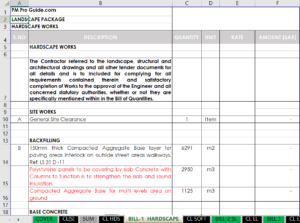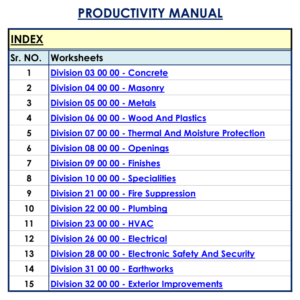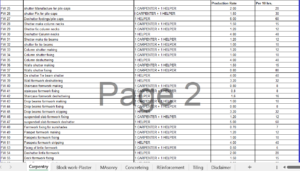Table of Contents
What is a Revised Schedule?
A revised schedule is an updated version of the original project schedule that takes into account any changes that have occurred during the project’s lifecycle. These changes may include delays, scope changes, budget adjustments, and more. By revising the schedule, project managers can ensure that the project stays on track and that stakeholders are aware of any changes.
Why is a Revised Schedule Important in Project Planning?
A revised schedule is critical in project planning because it allows project managers to anticipate and manage any changes that may occur during the project’s lifecycle. Without a revised schedule, project managers may find it challenging to keep the project on track and stakeholders informed.
A revised schedule also helps project managers to manage expectations. By updating the schedule regularly, stakeholders are aware of any changes and can adjust their expectations accordingly. This helps to prevent any surprises and ensures that everyone is on the same page.
How Does a Revised Schedule Differ from Other Types of Schedules?
There are several types of schedules that project managers may use in project planning, including baseline, tender, and recovery schedules. While they are all related to project planning, they have different purposes and uses.
- Baseline Schedule: A baseline schedule is the original project schedule that is created at the start of the project. It outlines the project’s scope, milestones, and deadlines.
- Tender Schedule: A tender schedule is created during the bidding process and outlines the schedule for the project.
- Recovery Schedule: A recovery schedule is created when the project has experienced delays and outlines the steps that need to be taken to get the project back on track.
In contrast, a revised schedule is an updated version of the original project schedule that takes into account any changes that have occurred during the project’s lifecycle. It’s created as changes occur, and its purpose is to keep the project on track and stakeholders informed.
If you’re interested in learning more about different types of time schedules, we encourage you to check out this comprehensive guide: Types of Time Schedules: A Full Guide. It provides a wealth of information on various types of time schedules, including baseline schedules, recovery schedules, and more.
Case Studies: How Revised Schedules Helped Construction Projects Stay on Track
Let’s take a closer look at a few case studies that illustrate how revised schedules have helped construction projects stay on track:
Case Study 1: The New Orleans Superdome Renovation

In 2005, Hurricane Katrina caused significant damage to the New Orleans Superdome. After a massive renovation project was approved, the project team created a baseline schedule outlining the project timeline. However, due to unforeseen circumstances such as poor weather conditions and unexpected structural issues, the project experienced significant delays.
To get the project back on track, the project team created a recovery schedule that identified critical path activities and outlined a plan to complete them on time. By regularly revising the schedule, the project team was able to identify potential issues before they became problems and make adjustments as necessary. As a result, the project was completed on time and within budget.
For more details on this case study check this article.
Case Study 2: The London Olympics Aquatics Centre

During the construction of the London Olympics Aquatics Centre, the project team encountered several unexpected challenges. These challenges included changes to the design of the facility and unforeseen site conditions.
To keep the project on track, the project team created a revised schedule that took these changes into account. By regularly revising the schedule, the project team was able to identify potential issues and make adjustments as necessary. As a result, the project was completed on time and within budget.
Case Study 3: The San Francisco Bay Bridge

The construction of the San Francisco Bay Bridge involved several complex phases and required close coordination between multiple contractors. To ensure that the project stayed on track, the project team created a revised schedule that identified critical path activities and provided a timeline for completion.
Throughout the project, the project team regularly revised the schedule to reflect any changes or delays that occurred. By doing so, they were able to identify potential issues before they became problems and make adjustments as necessary. As a result, the project was completed on time and within budget.
In each of these case studies, a revised schedule played a critical role in ensuring that the construction project was completed on time and within budget. By regularly revising the schedule, project teams were able to identify potential issues before they became problems and make adjustments as necessary. As a result, they were able to deliver high-quality projects that met the needs of stakeholders.
Conclusion: Why a Revised Schedule is Essential for Construction Projects
In conclusion, a revised schedule is an essential tool for ensuring that construction projects stay on track. By regularly revising the schedule, project teams can identify potential issues before they become problems and make adjustments as necessary. This allows them to deliver high-quality projects that meet the needs of stakeholders.
FAQs
- What is a revised schedule?
A revised schedule is an updated project schedule that takes into account any changes or delays that have occurred since the baseline schedule was created. - How often should a revised schedule be created?
A revised schedule should be created whenever there are significant changes or delays to the project timeline. In some cases, this may be daily or weekly, while in others it may be less frequent. - What is the difference between a baseline schedule and a revised schedule?
A baseline schedule is the initial project schedule that outlines the project timeline, while a revised schedule is an updated version that takes into account any changes or delays that have occurred. - Can a revised schedule help with budget management?
Yes, a revised schedule can help with budget management by identifying potential delays or issues that may impact the budget and allowing project teams to make adjustments as necessary. - Are revised schedules only used in construction projects?
No, revised schedules can be used in any type of project where there is a timeline or schedule involved. This includes software development, marketing campaigns, and more.


























